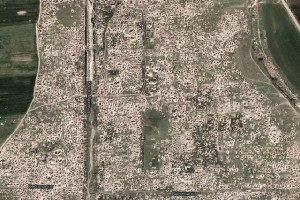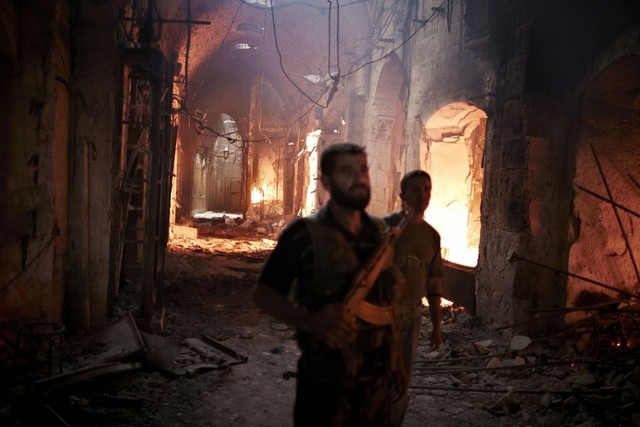
Credit: www.thenational.ae
Throughout the history of mankind, cultures have looted from other societies. Whether it be at times of conflict, or after a society’s collapse, historians have traced artifacts excavated in one culture back to another culture entirely. Today looting exists for many reasons, the primary reasons being a means to fund political campaigns and wars and the demand of artifacts for public and private collections. Both of these situations are fueled completely by the high monetary value of these looted items.
The Middle East is a dotted landscape of archaeological ruins from societies that have ceased to existed for thousands of years. Yet, their culture lives on by the stories that archaeologist can piece together through innumerable excavations. The artifacts that they uncover help teach generation after generation their story, but looting removes history behind them (Russell 29). Once an artifact is sold on the black market its’ story is forever lost, the culture it came from forgotten, and it just becomes a beautiful, ancient object to look at. Although there are many consequences that stem from looting, the most catastrophic is the rapid loss of culture occurring in the Middle East.

Credit: www.thenational.ae
The illegal trade of looted artifacts in the middle east is now compared to the diamond trafficking in some African countries. While the diamond trade is known as “blood diamonds,” the looting and illegal trade of artifacts is now called “blood antiquities” or “conflict antiquities” (Mulder 3). Just as the diamond trade helped African countries pay for war, the trade of conflict antiquities is helping accomplish the same. This causes repercussions that are detrimental to the preservation of many ancient cultures. Once an artifact is looted and sold, the provenience is lost. Without the context, we lose the history and meaning of that artifact (Russell 29). Although many people worldwide view looting as a purely negative act, society has allowed for this to occur. Terrorist groups are an easy target to blame for the illegal trafficking of artifacts, but it must be taken into consideration that someone is purchasing these looted items. The trade of antiquities is being facilitated by buyers and sellers across Europe, the Middle East, and the United States (Mulder 2). Terrorists groups are not the only ones looting these artifacts. In some countries, such as Syria, the government is also taking part is this horrific practice (Mulder 2).
So how do we begin to stop this vicious cycle from perpetuating? There are many small steps that can help make this issue well known worldwide. In attempt to raise awareness and stop widespread looting in the Middle East, countries should encourage the United Nations to ban the sale of antiquities (Mulder 3). While a UN ban on the trade of Antiquities in countries such as Syria and Iraq may not stop looting and trafficking, it could help raise awareness of this growing epidemic. By making the general public aware of the rapid loss of culture that is occurring each day, there would be more pressure on governments to help create stricter laws stopping the trade of these antiquities.
Even though trafficking antiquities is difficult to prosecute, by letting the public know how this issue is continuing to grow can help reduce the number of artifacts that are traded. It is the history of the earliest societies that is getting lost through looting. It is our duty as earlier man’s ancestor to ensure their stories live on throughout time.
Written by: Taylor Lawhon
